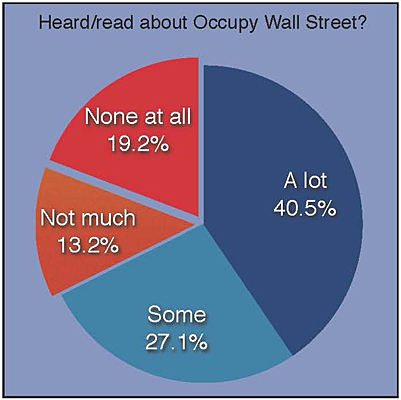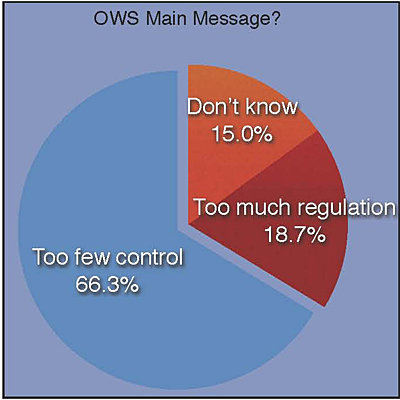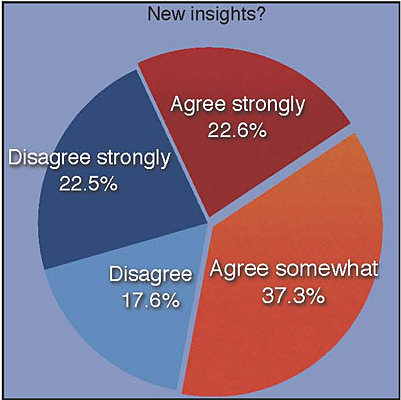


Occupy Wall Street who?
One third of Americans know little or nothing about Occupy Wall Street
5:54 p.m., Jan. 30, 2012--A new national University of Delaware survey reveals that four months since the start of the Occupy Wall Street movement, almost one in five Americans have heard nothing at all about it. Even among those who are aware of the movement, one third cannot identify the protests’ main message (that too few control the majority of the nation’s wealth and power). Nineteen percent say (incorrectly) that the movement was protesting excessive regulation of business and industry.
Still, many Americans see the protests as bringing something unique to the public debate. Of those who say that they have heard about the protests, a majority agrees the protests offered new insights on social issues.
Research Stories
Chronic wounds
Prof. Heck's legacy
Questions and results
Surveyors asked, “How much have you heard or read over the past few months about the protests and rallies held in New York City and other cities, called Occupy Wall Street: a lot, some, not much or none at all?” Respondents answered: a lot (40.5 percent), some (27.1 percent), not much (13.2 percent), none at all (19.2 percent). (Chart 1)
Surveyors asked, “Which do you think comes closest to the protesters’ main message? Is it that too few people control the majority of the nation’s wealth and power OR that there is too much regulation on business and industry?” Respondents answered: too few control majority of nation’s wealth and power (66.3 percent), too much regulation on business and industry (18.7 percent), other and don’t know(15 percent). (Chart 2)
Surveyors said, “Please tell me how strongly you agree or disagree with the following statement about the Occupy Wall Street protests: ‘The protesters offered new insights on social issues.’” Respondents answered: strongly agree (22.6 percent), somewhat agree (37.3 percent), somewhat disagree (17.6 percent), strongly disagree (22.5 percent). (Chart 3)
About the study
The study was conducted by Danna Young, assistant professor of communication, and Paul Brewer, professor of communication. The Occupy Wall Street Protest research was funded by the University of Delaware’s Center for Political Communication and the UNIDEL Foundation.
Method
The “Perceptions of the Occupy Wall Street Protests Survey” conducted telephone interviews with a nationally representative sample of 901 adults living in the continental United States. Telephone interviews were conducted by landline (541) and cell phone (360, including 170 without a landline phone). Princeton Survey Research Associates International administered the survey. Interviews were conducted in English from Jan. 18-25, 2012. Statistical results are weighted to correct known demographic discrepancies. The margin of sampling error for the complete set of weighted data is ± 3.8 percentage points.










